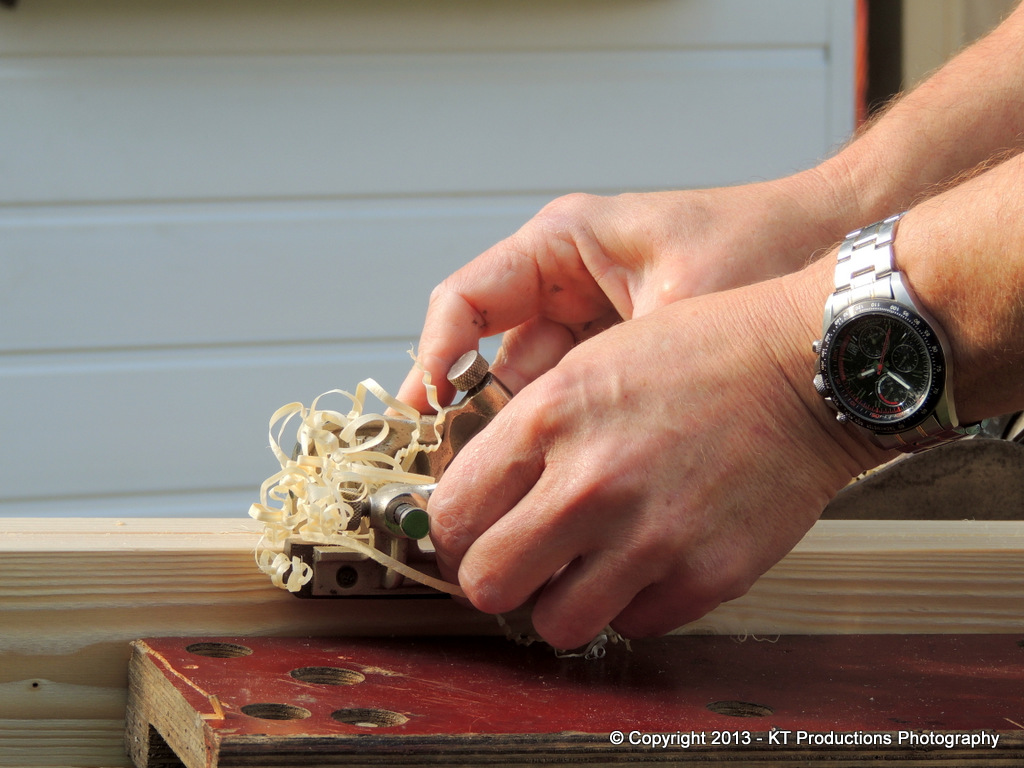I've become addicted to The Woodwright's Shop over recent years ;-)
There are two things about old tools:
They're quiet. They don't interrupt good radio plays, and conversation. I imagine a traditional workshop was full of banter and probably a lot of teasing. It's not that today's tradesmen are surly, morose or mute, but that a conversation would have been a lot easier 100 years ago, and I think that matters.
The other thing is that they represent centuries of thought in their designs. Small changes that worked were kept, and bright ideas that didn't were dropped. It's true that many tools do one job well and are useless for other things - specialist moulding planes are probably the most obvious example - but as Roy Underhill demonstrates, they're often really quick to use. I think it's good to value things that past generations valued too.
Modern power tools sometimes do have good innovations, and make use of materials that just weren't available. On thing that immediately springs to mind is my rail (plunge) saw. It works so well because of the 'sticky' rubber strip on the rail, so it usually doesn't need clamping. Great use of modern materials. Similarly, the batteries in my cordless make it practical for all-day use.
A huge improvement in performance, too, has been making screwdrivers, drills and other cutters with industrial diamonds embedded in the biting surfaces. I probably get the most from the screwdriver bits, but I have some core drills and wouldn't be without them. Similarly the use of carbide - more recent than you might think, and we'd be spending far more time sharpening (and just making holes, etc.) without it.
There are one or two human-powered tool designs, too that work excellently. I love my
wheel marking gauges. They'd be better with tighter screw threads, but that's manufacture - the actual design is great. Similarly, I have a Boggs-pattern spokeshave, which I really like. I've tried the spoon-handled ones and don't get on with them (although the early wooden ones I do, strangely).
But the marketing process of modern manufacturing has to be worked through carefully, otherwise the outcomes are poor. I've a new design Stanley shoulder plane that's spoiled by some really stupid decisions at the design stage - any real user (I don't think any unbiased ones were involved in the design process) would have spotted the problems and one hopes they'd have been sorted out.
And poor quality control also plays its part. I only have one modern premium plane (Veritas), which I was given, and it's brilliant. I'd buy more if I could afford them, as they all (Veritas, Clifton, LN, etc.) put a lot of effort into manufacturing QC, and the results speak for themselves.
Given all the above, I find I can't answer your question really!
E.

































